South Africa
As the G7 summit opens next week Monday (June 16), in Kananaskis, Canada, one of the most anticipated bilateral meetings will take place on the sidelines: U.S. President Donald Trump and South African President Cyril Ramaphosa are set to meet again, less than a month after a tense and controversial encounter in the Oval Office.
That first meeting three weeks ago, which many described as an ambush, generated significant headlines. According to South African officials, Trump veered off script, pressing Ramaphosa on land reform, immigration, and trade in what some diplomats have called an undiplomatic tone. The Oval Office meeting was marked by visible tension and a moment that’s already become lore.
Ramaphosa has since confirmed that he will meet Trump again at the G7. Speaking to reporters in Pretoria, he said, “I am going there to have bilaterals with the chancellor of Germany, the prime minister of Canada, and, of course, I will also be meeting President Trump, whom we met at the White House.” He added that his main aim is to "reset relations with the White House" during the summit.
The second encounter
This second encounter takes place against a backdrop of friction between Washington and the African Union, fueled by Trump’s travel bans targeting several African nations and new tariffs that hit key African exports. As the continent’s most visible statesman on the global stage, Ramaphosa is walking a tightrope: confronting policies that many Africans view as hostile, while preserving channels for diplomacy.
During their previous encounter, Trump praised South Africa’s economic resilience, while Ramaphosa emphasised the need for mutual respect. Now, in a more complex geopolitical context, the stakes are arguably higher. Trump continues to push a transactional approach to foreign relations, often eschewing multilateralism, while Ramaphosa remains an advocate for global cooperation through platforms like the AU, BRICS, and, soon, the G20, where South Africa holds the chairmanship.
The Social Media Debate
Observers believe Ramaphosa will use this G7 sideline meeting to advocate for improved U.S.-Africa relations, seeking progress on issues ranging from fairer trade deals to easing visa restrictions and securing investment in digital and green infrastructure.
On social media, Africans remain divided. While some hail Ramaphosa’s engagement as pragmatic leadership, others view repeated meetings with Trump as conceding too much for too little. Online commentary swings from supportive think pieces to satirical memes referencing dimmed lights and diplomatic dimming.
Still, the second handshake matters.
Beyond the optics, it signals Africa’s rising influence in global diplomacy and Ramaphosa’s ambitions to shape the narrative from the Global South. Whether this renewed dialogue delivers meaningful shifts or simply reinforces familiar patterns remains to be seen.
In a world increasingly defined by unpredictable alliances and polarised politics, the Trump-Ramaphosa meeting is more than a bilateral; it's a reflection of how African leaders are recalibrating their global relationships.



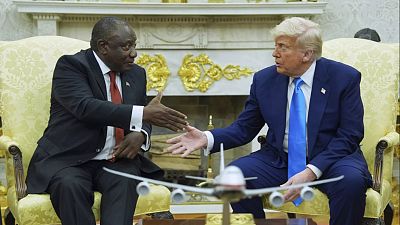

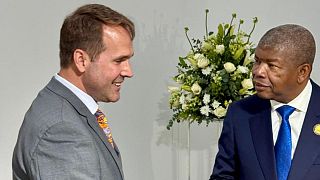
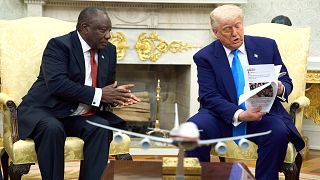
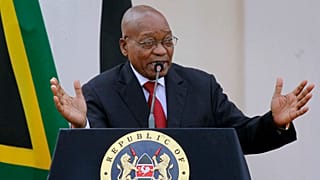
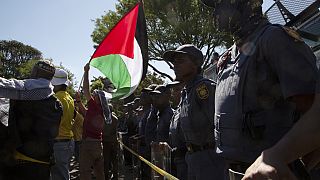
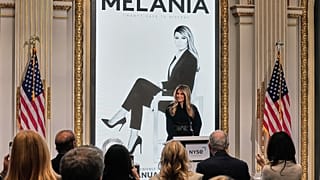


01:19
Iran orders U.S. nuclear talks amid threats and regional fears
00:43
Minneapolis mourns nurse Alex Pretti fatally shot by federal immigration officers
01:51
Man arrested after spraying unknown substance on Rep. Ilhan Omar
Go to video
Senegalese actress Halima Gadji dies in France
01:06
Trump says Ilhan Omar’s wealth is under investigation
Go to video
Streamer IShowSpeed calls Ghana “Home” on Africa tour